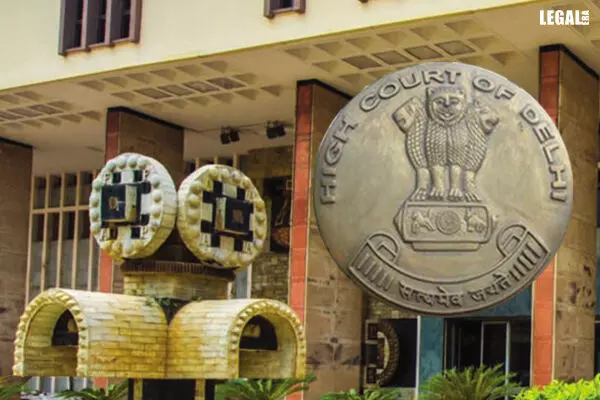- Home
- News
- Articles+
- Aerospace
- AI
- Agriculture
- Alternate Dispute Resolution
- Arbitration & Mediation
- Banking and Finance
- Bankruptcy
- Book Review
- Bribery & Corruption
- Commercial Litigation
- Competition Law
- Conference Reports
- Consumer Products
- Contract
- Corporate Governance
- Corporate Law
- Covid-19
- Cryptocurrency
- Cybersecurity
- Data Protection
- Defence
- Digital Economy
- E-commerce
- Employment Law
- Energy and Natural Resources
- Entertainment and Sports Law
- Environmental Law
- ESG
- FDI
- Food and Beverage
- Gaming
- Health Care
- IBC Diaries
- In Focus
- Inclusion & Diversity
- Insurance Law
- Intellectual Property
- International Law
- IP & Tech Era
- Know the Law
- Labour Laws
- Law & Policy and Regulation
- Litigation
- Litigation Funding
- Manufacturing
- Mergers & Acquisitions
- NFTs
- Privacy
- Private Equity
- Project Finance
- Real Estate
- Risk and Compliance
- Student Corner
- Take On Board
- Tax
- Technology Media and Telecom
- Tributes
- Viewpoint
- Zoom In
- Law Firms
- In-House
- Rankings
- E-Magazine
- Legal Era TV
- Events
- News
- Articles
- Aerospace
- AI
- Agriculture
- Alternate Dispute Resolution
- Arbitration & Mediation
- Banking and Finance
- Bankruptcy
- Book Review
- Bribery & Corruption
- Commercial Litigation
- Competition Law
- Conference Reports
- Consumer Products
- Contract
- Corporate Governance
- Corporate Law
- Covid-19
- Cryptocurrency
- Cybersecurity
- Data Protection
- Defence
- Digital Economy
- E-commerce
- Employment Law
- Energy and Natural Resources
- Entertainment and Sports Law
- Environmental Law
- ESG
- FDI
- Food and Beverage
- Gaming
- Health Care
- IBC Diaries
- In Focus
- Inclusion & Diversity
- Insurance Law
- Intellectual Property
- International Law
- IP & Tech Era
- Know the Law
- Labour Laws
- Law & Policy and Regulation
- Litigation
- Litigation Funding
- Manufacturing
- Mergers & Acquisitions
- NFTs
- Privacy
- Private Equity
- Project Finance
- Real Estate
- Risk and Compliance
- Student Corner
- Take On Board
- Tax
- Technology Media and Telecom
- Tributes
- Viewpoint
- Zoom In
- Law Firms
- In-House
- Rankings
- E-Magazine
- Legal Era TV
- Events
Delhi High Court: Notice Of Dispute To MSEFC Under MSMED Considered Warning Of Arbitration Under A&C Act

Delhi High Court: Notice Of Dispute To MSEFC Under MSMED Considered Warning Of Arbitration Under A&C Act
The bench rejects the objections and allows the petition
The Delhi High Court has held that a notice given by a party invoking jurisdiction of the Micro and Small Enterprises Facilitation Council (MSEFC) under Section 18 of the Micro, Small and Medium Enterprises Development (MSMED) Act, 2006 can be considered an arbitration notice under Section 21 of the Arbitration and Conciliation Act (A&C) Act.
The bench comprising Justice Pratibha M. Singh stated that prior to the Supreme Court judgment in the Gujarat State Civil Supplies Corporation and Silpi Industries case, the entity not registered under the MSMED Act at the time of contract was not clear. Therefore, the party wrongly invoking jurisdiction of MSEFC could not be faulted.
On 14.10.2011, the parties entered an agreement for executing the pipeline-laying work. The petitioner was to complete the project within 6 months. However, it was completed after a substantial delay. On 14.05.2015, the petitioner registered under the MSMED Act after the agreement and completion of maximum work of the project.
However, a dispute arose between the parties on compensation for the prolonged period and additional work.
Thereafter, the petitioner filed a reference before the MSEFC under Section 18 of the MSMED Act. The conciliation failed and the parties were referred to arbitration before the Delhi International Arbitration Centre (DIAC).
Meanwhile, the judgment of the top court in the Gujarat State and Silpi Industries case was delivered. It clarified that the benefit of the MSMED Act would not be available if the entity was not registered at the time of the agreement or when the supplies were made.
Thus, the petitioner withdrew the reference before the DIAC and invoked the contractual arbitration by filing an application under Section 11(6) of the A&C Act.
The respondent raised objections to the maintainability of the petition:
• The petition is not maintainable as mandatory notice of arbitration required under Section 21 of the A&C Act was not issued.
• The claims are barred by barred by limitation.
The court observed that before the apex court judgment, the entity not registered under the MSMED Act at the time of contract was not clear. The petitioner had issued notice to the respondent along with a statement of claim wherein arbitration was expressly mentioned.
Thus, the bench stated that a notice given by a party invoking jurisdiction of MSEFC under Section 18 of the MSMED Act was considered a notice of arbitration required under Section 21 of the A&C Act. The claims were pending before the MSEFC and the DIAC from 21.11.2018 to 17.11.2022 due to the uncertainty in law. Therefore, the petitioner was entitled to benefit of Section 14 of the Limitation Act, which exempted the bona fide time spent before the wrong forum.
Thus, Justice Singh held that the period spent before the MSEFC would not be counted for calculating limitation. While rejecting the objections, the petition was allowed.


